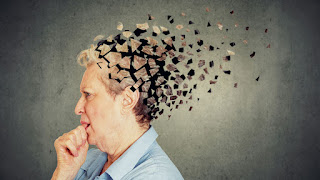Pranay, Week 13: The Privilege of Memory
Memory is a privilege.
Many of the people I work with and help have Alzheimer's. Just an hour ago as I was at the home, a lady complained to me about how she is no longer able to remember things as well. The expression on her as she said so was filled with anguish and embarrassment, and I am disappointed in myself to say that my response was "It's okay."
Working in a senior citizen home, I've encountered a lot of difficult situations that have left a mark in my own memory. I've watched as people struggled to walk two steps on their own and picked them up when they fell. I've watched as people struggled to lift a spoon to their mouth properly. However, the most painful thing I've seen is watching as people struggle to recognize their own loved ones.
 |
| image from The Jackson Labratory |
Memory seems like such a common and easy thing when we have it. It can be viewed as both positive or negative. Examples of positive memories are birthdays, marriages, and parties. In Toni Morrison's Beloved, she loosely defines a traumatic memory as a "rememory." A memory that ones tries to repress, only to remember it once again. Nevertheless, experiences are what make a person who they are and memory is what reminds them of who they are. To lose your memory is to lose yourself. In an era where individuality is so emphasized, I cannot even imagine losing my memory. Memories of my friends, families, achievements, and failures that have all shaped me into myself.
In my eyes, memory has become a privilege that we will all be lucky to have as we grow older. When I grow old, I can only wish to be able to remember my life and pass on its knowledge to my children and grandchildren.
Hi Pranay,
ReplyDeleteFirstly, I appreciated your use of a one-sentence introduction emphasizing the importance of memory since it highlighted a key point addressed throughout your blog. Alzheimer’s in my opinion is one of the most frightening diseases on the planet. A few years before her death, my great-grandma developed the disease. At first, she was forgetting simple, everyday things but over time she eventually began to forget me and my mom which was extremely disheartening to watch. Weekly Facetime calls with her were extremely grim since her condition was worsening and it was clear everyone was trying to make her remember who my mom and I were.
As disheartening as this experience was, it taught me to cherish my memory of my loved ones and the time I spend with them, since as time goes by these memories will fade away and could even permanently disappear. This privilege of memory is something I will continue to cherish every day due to its immense value and the powerful impact it is capable of having on my heart.
Hi Pranay. We often take our ability to hold onto emotional memories for granted. Sometimes, when remembering something unpleasant it can be a burden. We do not appreciate how remembering the bad feeling after making a mistake prevents us from repeating our actions, or the thought of a funny moment that is out brain savoring the experience. Knowing that our memory will deteriorate as we grow older, due to dementia, Alzheimer's, or old age is a good reminder to enjoy this precious ability. I often feel that even now I can forget basic everyday responsibilities, that my mind is scattered. This could be a result of juggling different task and a poor attention span due to social media. Whatever the case, a tip to preserve your memory is to get sleep and avoid overstimulation. Sleep strengthens nerves used throughout the day, and gets rid of the metabolic junk that your brain has built up through activity, making it crucial for healthy memory.
ReplyDelete